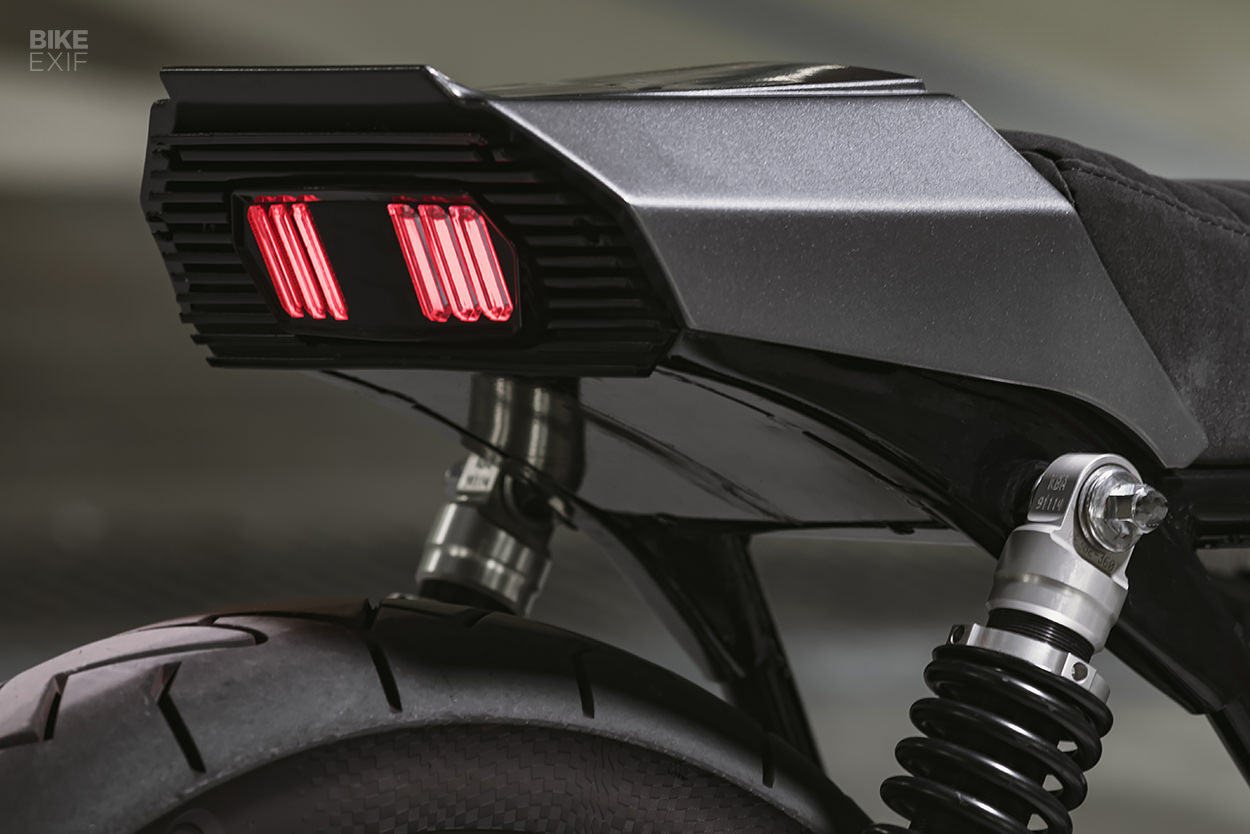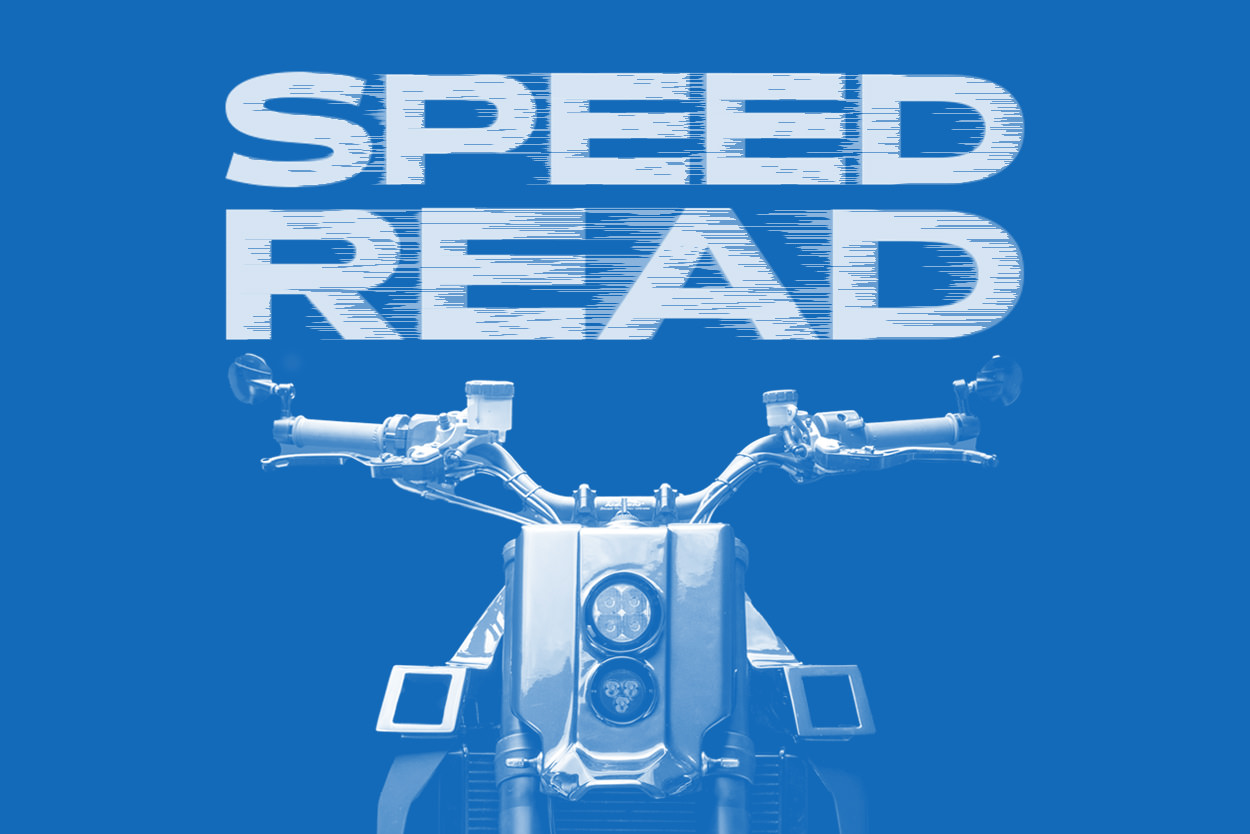
This week’s offering includes two very different Honda CB750 customs from two different parts of the world. But first, we look at a KTM SuperDuke 990 by Outsiders Motorcycles, and a rare ISDT Triumph.
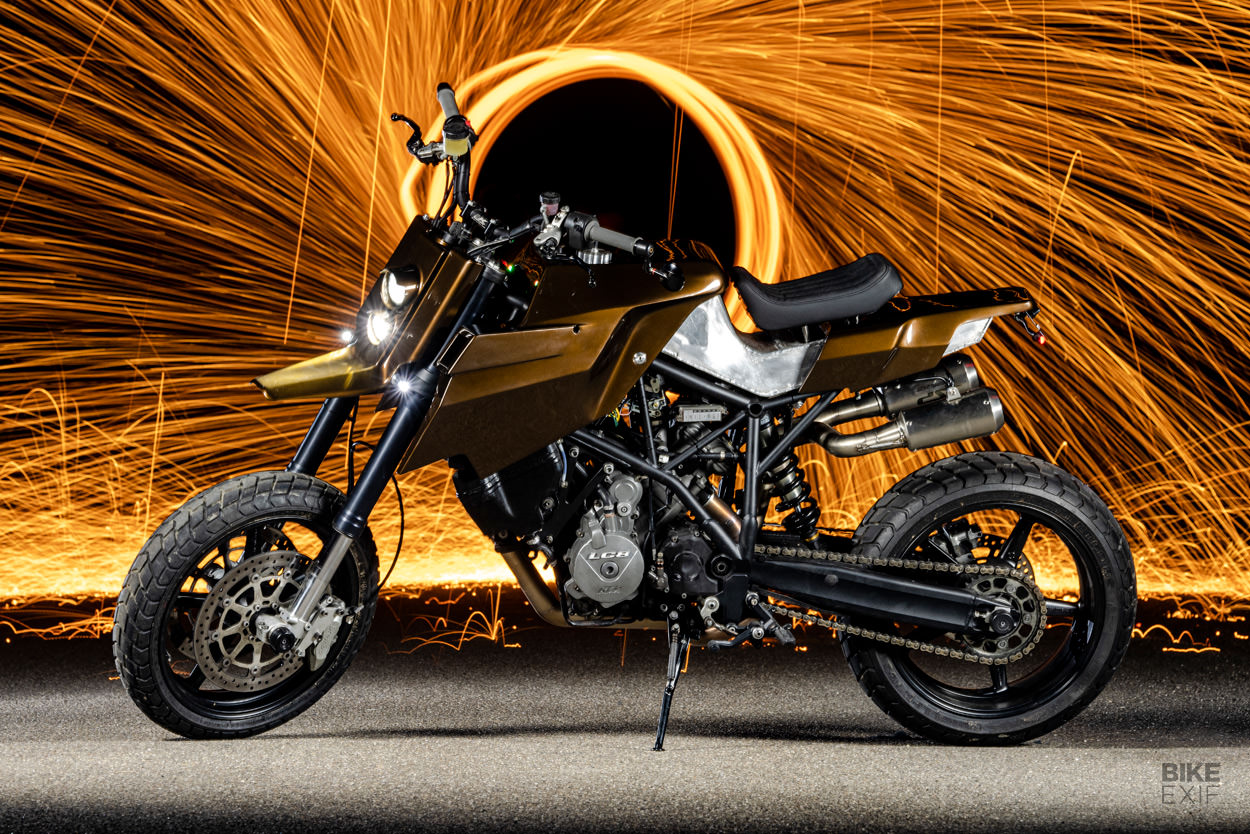
KTM Super Duke 990 by Outsiders Motorcycles Judging by this radical KTM Super Duke, ‘Outsiders’ is as on the nose as custom shop names get. Builder BertJan Blok has built his fair share of trad customs—but he’s also know for thinking way outside the box.
BertJan’s client on this project spotted one such bike (a bright pink Husqvarna Vitpilen 701), and wanted something similar. But he stands well over two meters tall, and so the 701’s proportions would have been way off. A 2006-model KTM Super Duke 990 was picked as a donor instead, and soon the entire concept morphed into entirely its own animal.
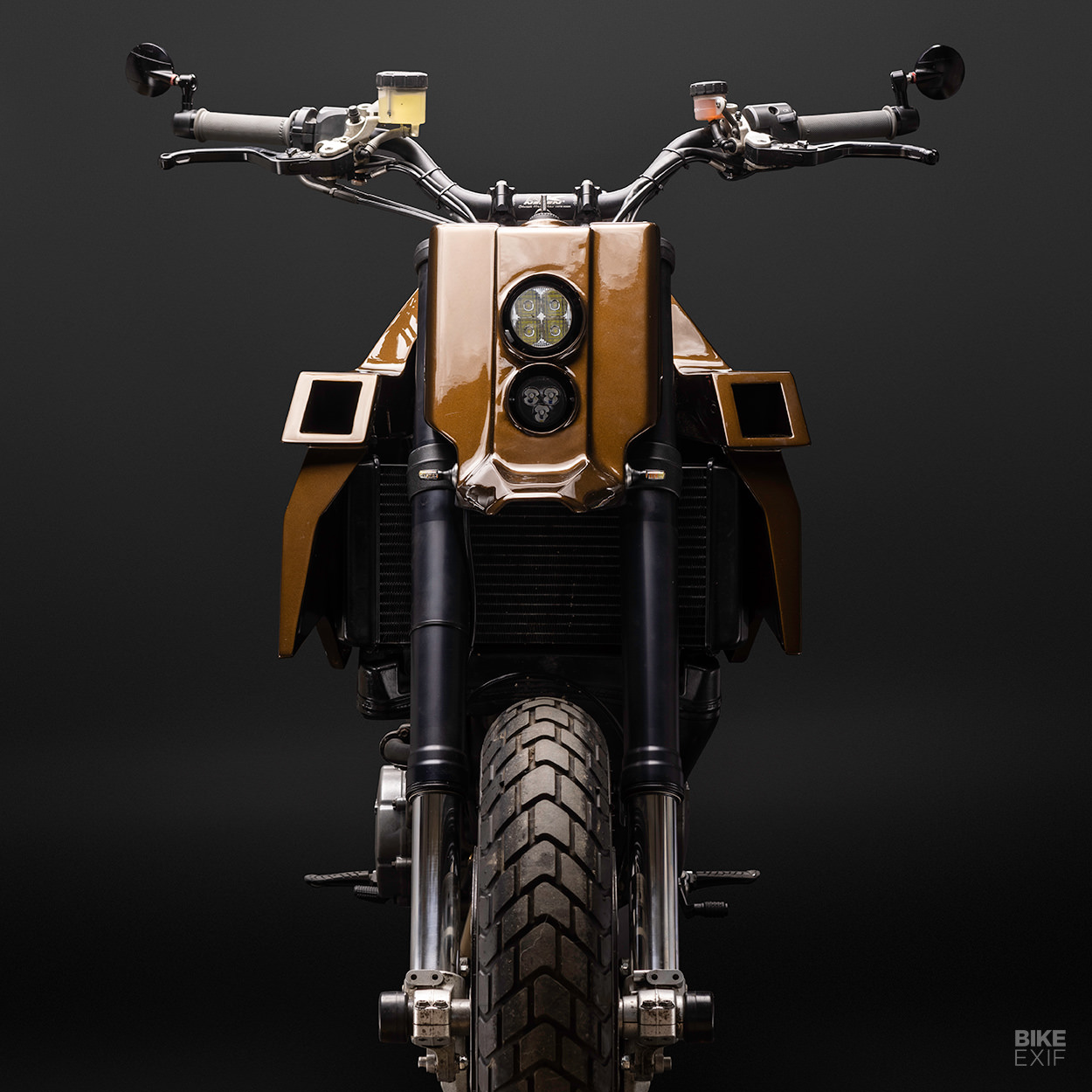
The 990’s plastics were cracked and rattle-canned black, so BertJan tossed those straight into the bin. Then he ripped out the original speedo to see if the bike would still run without it, and started hashing out the design. “I like to keep the designs rough and raw,” he says, “because it leaves room for improvements and ideas along the way, as long as the big picture is clear.”
The KTM now wears a full complement of hand-shaped aluminum bodywork, with a one-off fuel cell acting as the base for everything. BertJan shaped the fuel cell by first mocking it up with cardboard, then moving to aluminum. The reservoir mounts to the stock frame up front, and sits on a custom chromoly subframe at the back.
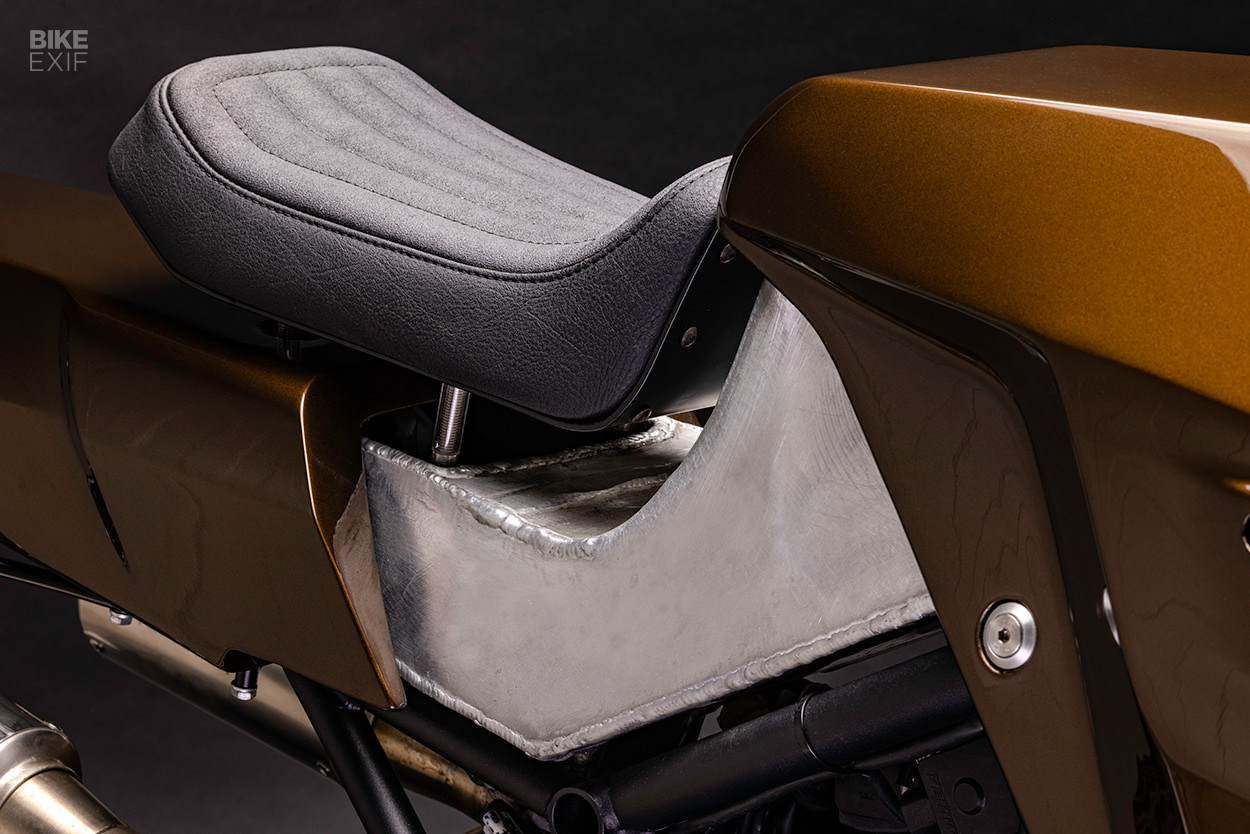
Once the main section was done, BertJan fabricated a tank cover, a tail section and a sharp headlight nacelle. All of them have some of the original bike’s DNA in them, but they’re not carbon copies. The tank cover is quick to remove too, because it provides access to the air filter, battery and key electronic components.
Getting the seat right was a challenge, given the client’s frame, so BertJan went for a ‘floating’ design. The seat is built on an aluminum pan that’s 10 mm thick, so that it can carry the rider on its four mounting points. The foot pegs were remounted lower too, to optimize the rider triangle.
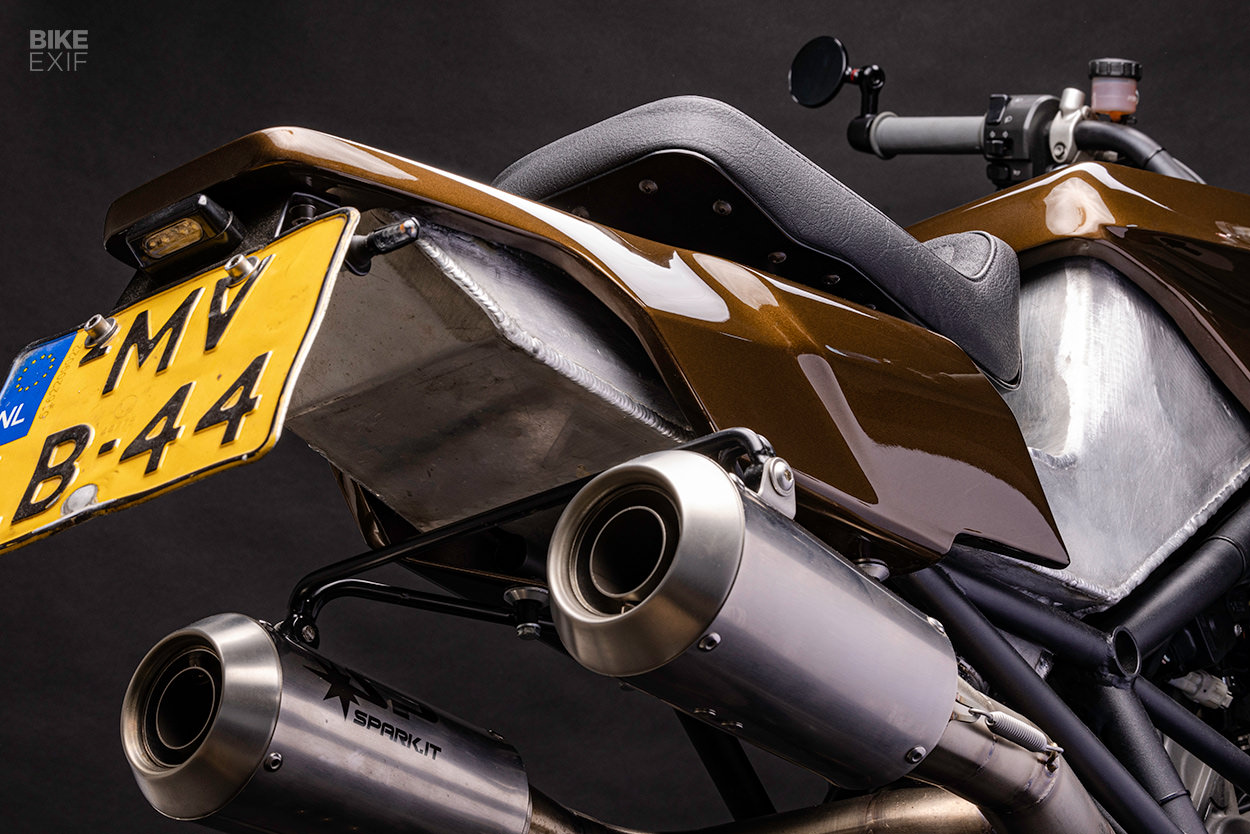
BertJan installed a KTM 990 Adventure front end, and a Hyperpro rear shock, which both help the Super Duke stand taller. He also built the stainless steel exhaust system, and machined a bunch of smaller parts to help the Super Duke wheels work with the Adventure forks. Neken handlebars and risers and a Motogadget speedo round out the spec.
As the project neared completion, BertJan put the bike together, took a photo and used Photoshop to experiment with liveries. In the end, a simple root beer finish over some raw aluminum did the trick.
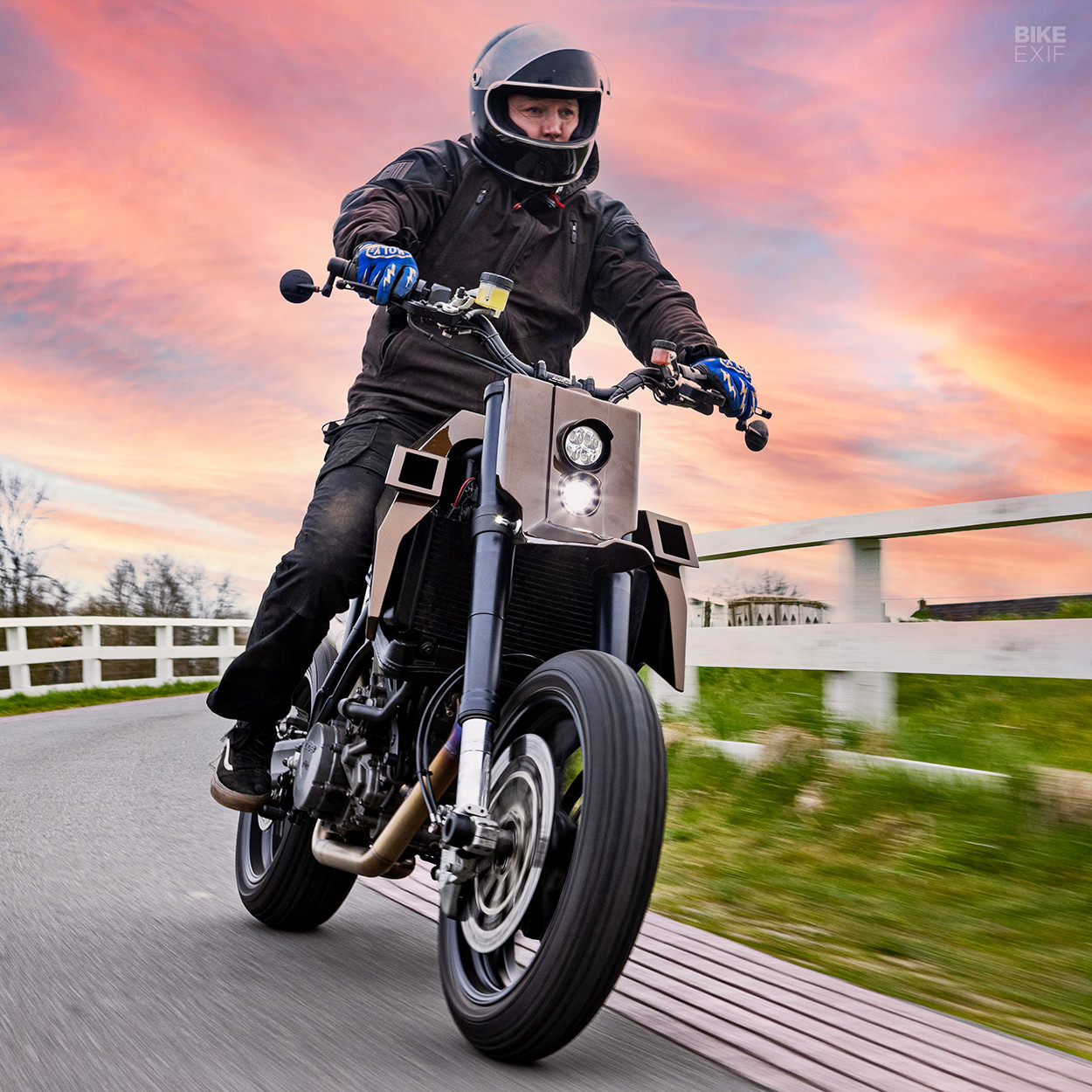
If you’d like to know if this KTM looks as rowdy in person as it does in these photos, it’ll be on display at The Bike Shed Show in London later this week. [Outsiders Motorcycles | Images by Winchester Creatives and Lynn Hofenk]
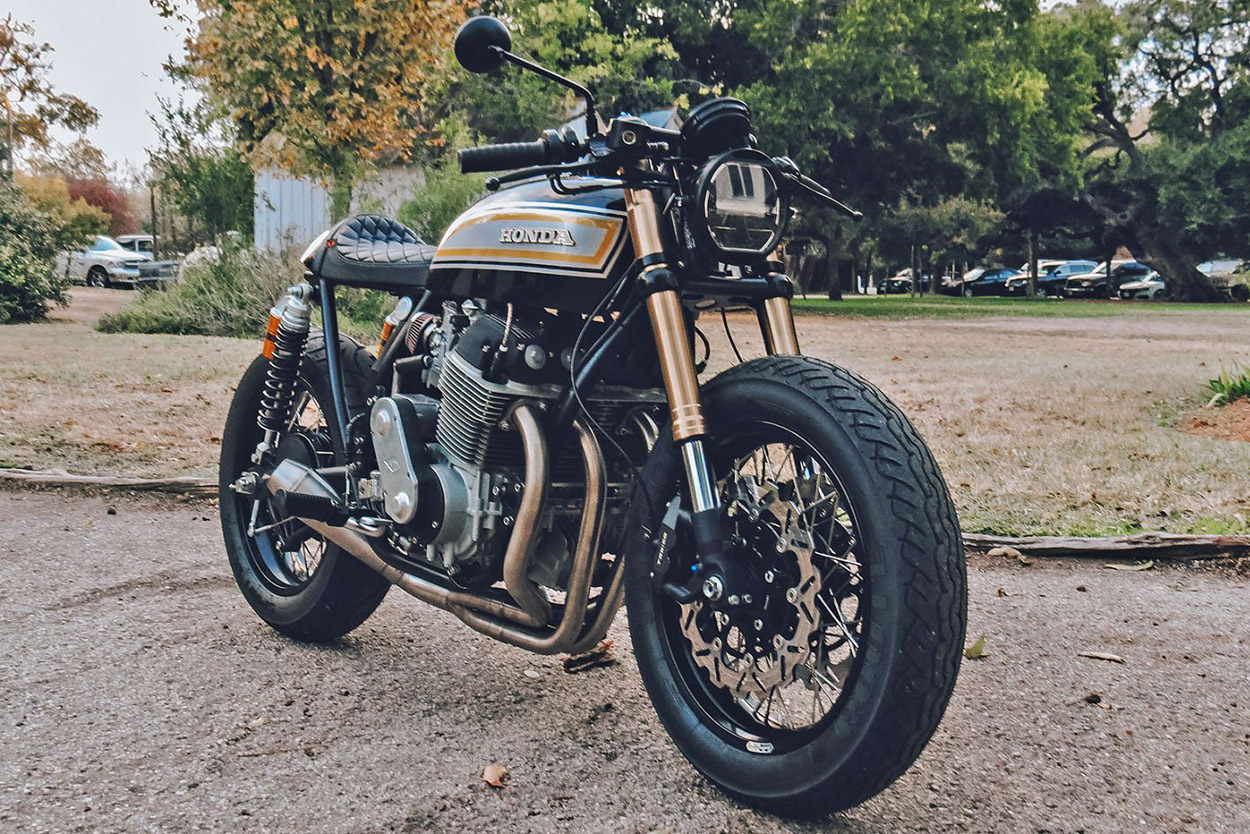
Honda CB750 by Tyson Carver Based in Texas, Tyson Carver’s been customizing bikes in his home workshop for over a decade already. But this 1974 Honda CB750 is the first build he’s done for an actual customer—and we’re pretty sure it won’t be his last.
The brief was for a classic café racer with a no holds barred approach. So Tyson worked with the Honda ‘hot rod’ specialists at Cycle X to hop up the motor. It now runs with a 915 cc big bore kit, a long list of internal mods, a Mikuni RS 34 mm carb kit and a custom four-into-one exhaust system.
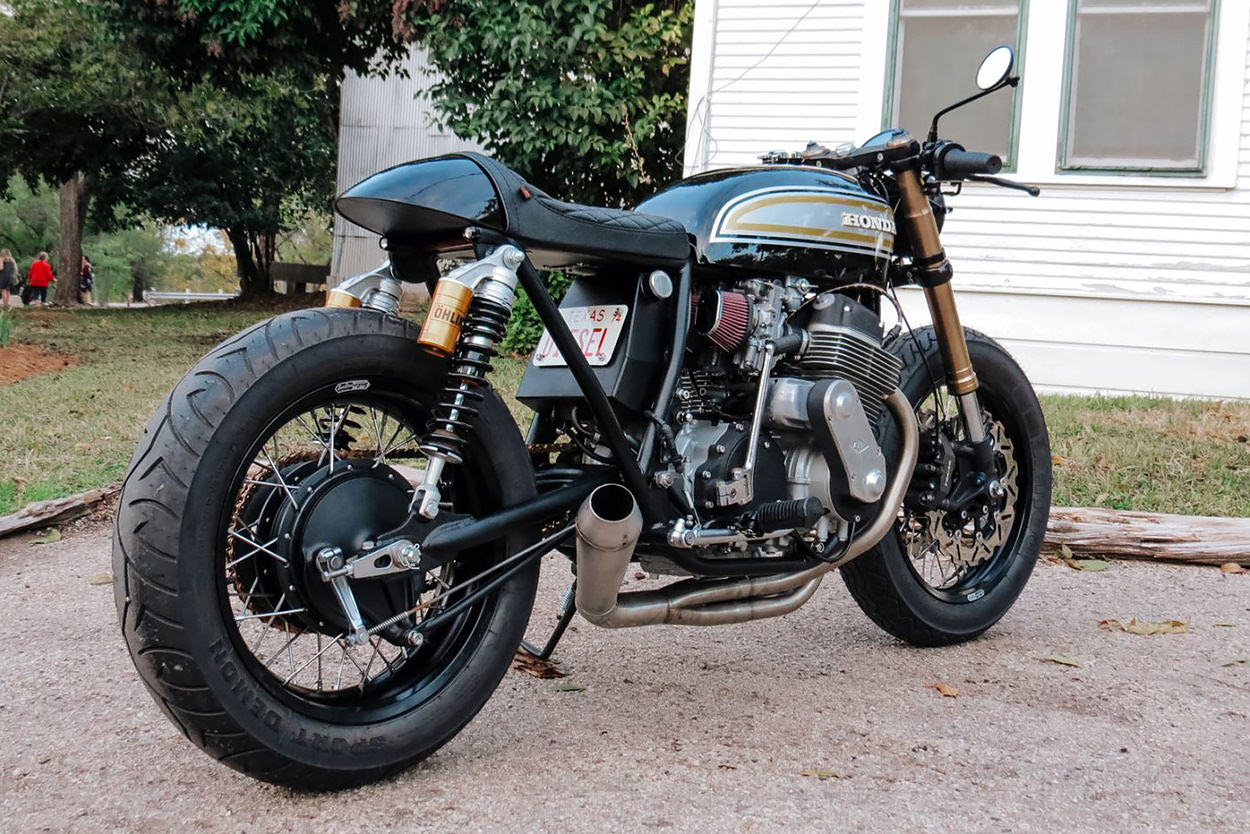
Keen eyes will spot a classic ARD magneto housing on the side of the engine—but it’s a red herring. The ARD magneto wasn’t working, so Tyson stripped out its guts and hid a Dyna electronic ignition and a set of small coils inside it.
The chassis is pretty special too. It’s from an old drag racing bike, built by Bill Benton at BentON Racing in Georgia. “Because it started as a race frame and I had sourced the ARD magneto ignition, we wanted to make it a sort of a sleeper café racer and a tribute to old Russ Collins type race bikes,” says Tyson.
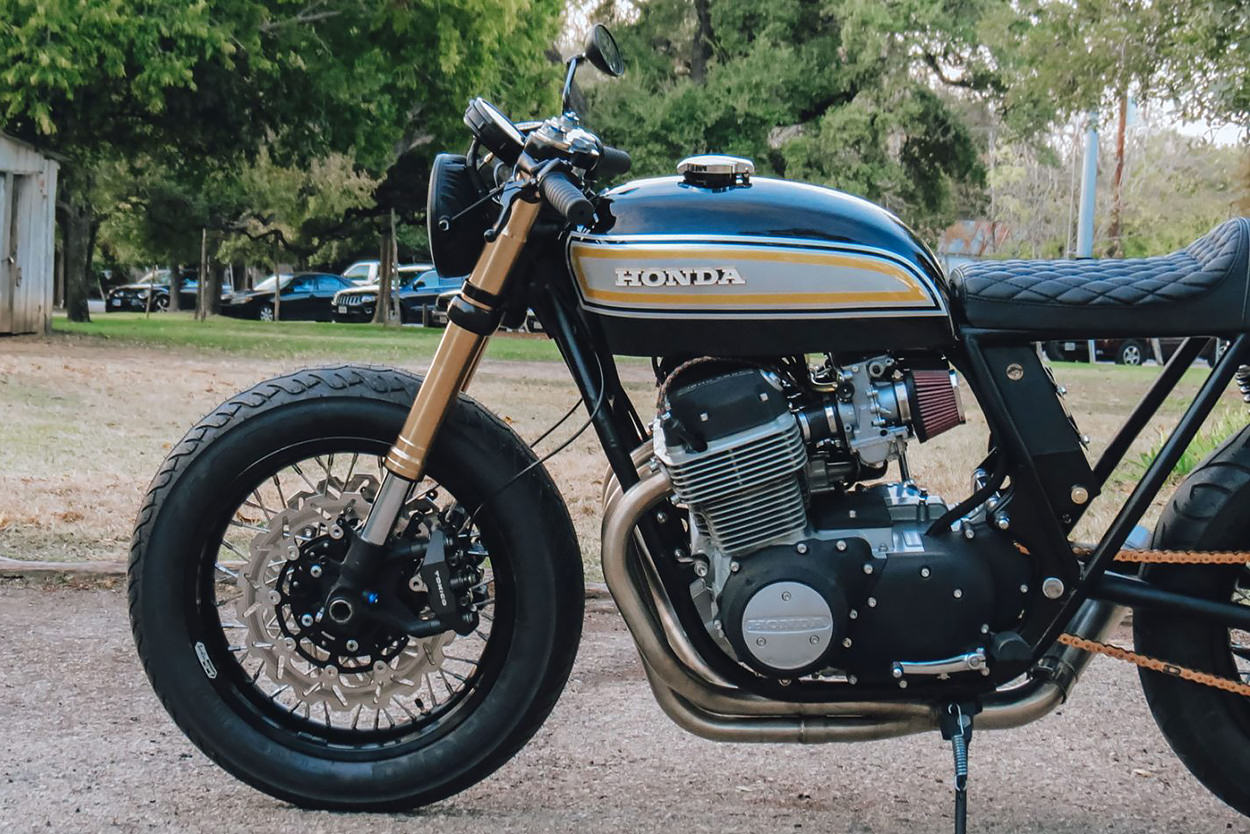
Tyson made some tweaks to make the frame street-able, then installed a Suzuki GSX-R front end, and Öhlins shocks that are hooked up to a Honda CB550 swingarm. The rear drum brake was rebuilt, while the front wheel is stopped by the Suzuki’s Tokico calipers.
Tyson also added a café racer seat from Tuffside, Messner Moto clip-ons, Rebel Moto switchgear, a Speedhut speedo and an LED headlight. The bike was rewired with Motogadget components too, and upgraded with a Cognito Moto oil tank.
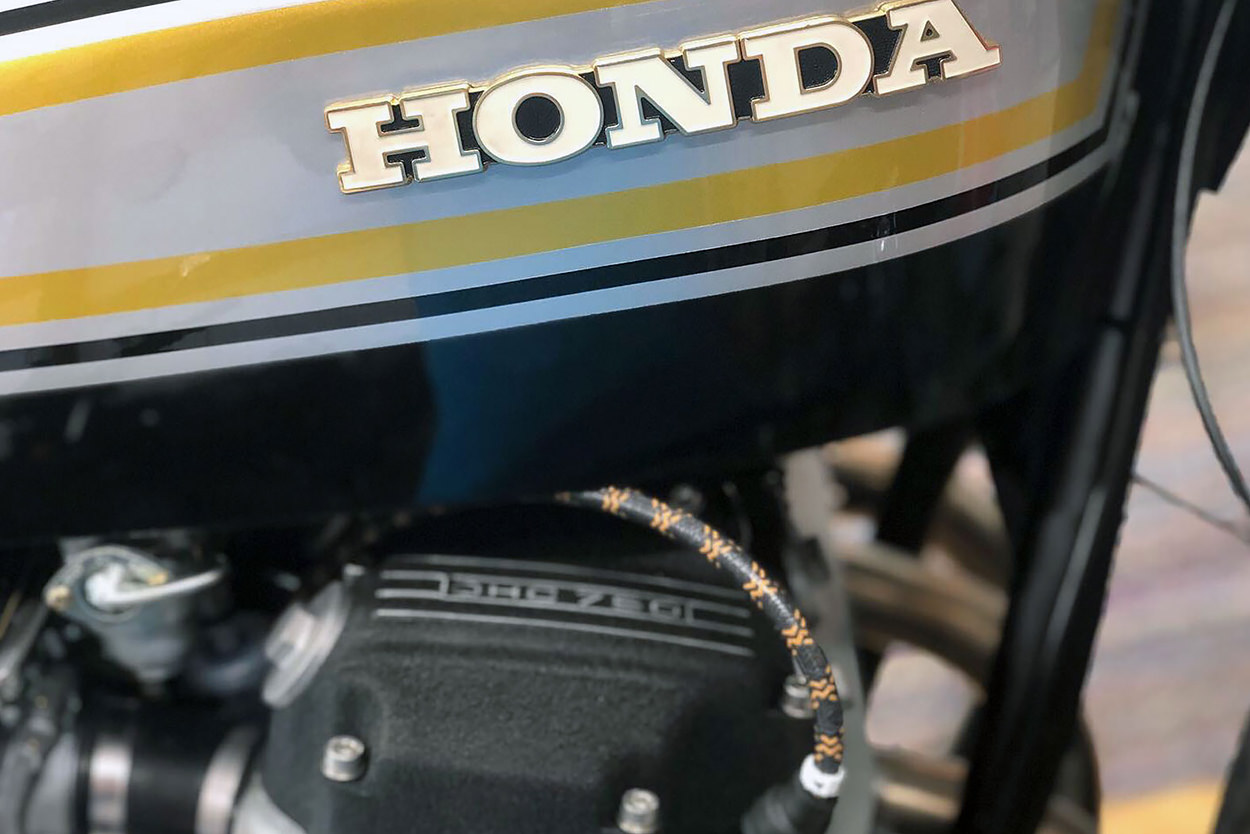
Top marks to Tyson for the classic color scheme, which definitely adds to this Honda’s vintage sleeper persona. And it really is a sleeper, according to Tyson.
“The engine will straight up scare you,” he says. “It revs like an F1 car.” [Via]
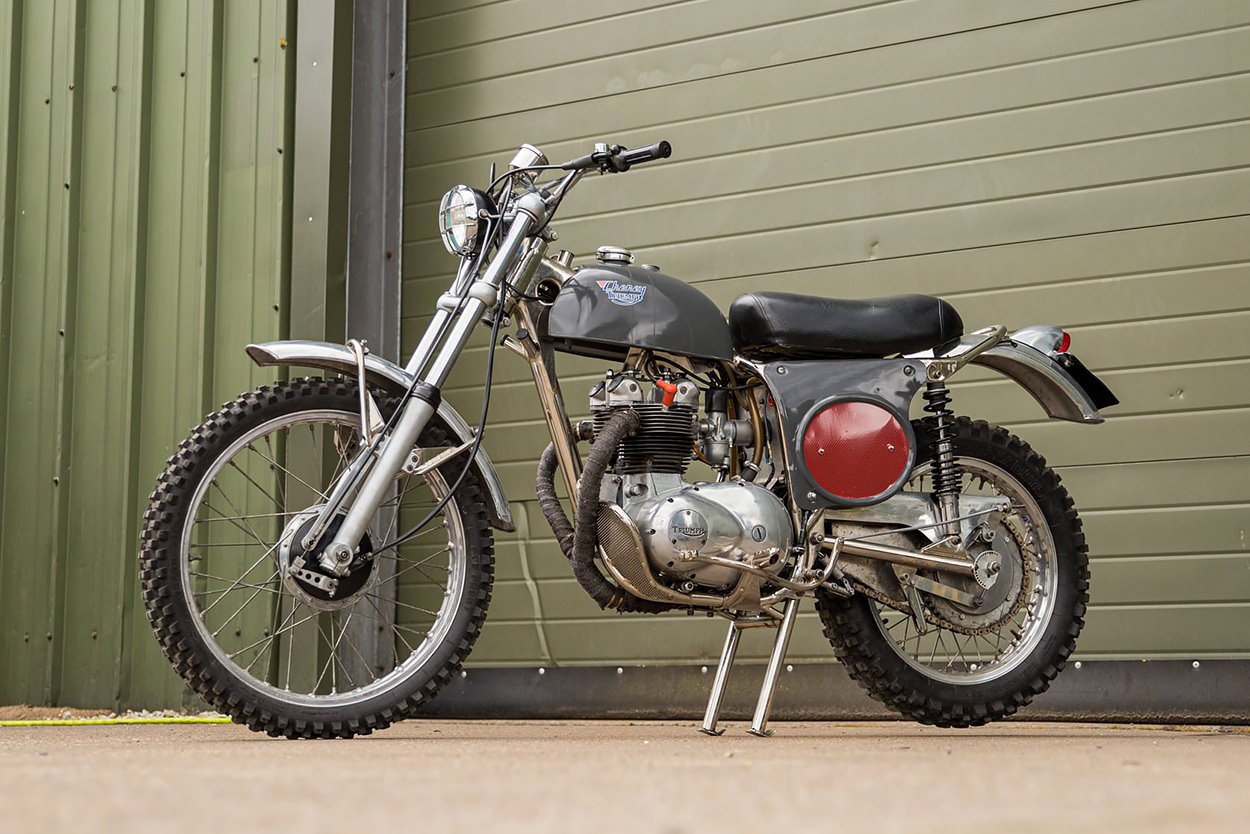
Sold: Cheney Triumph ISDT When it comes to vintage enduro racing Triumphs, the Rickman Metisse seems to get the most airtime. But there were other icons of the sport building top-shelf race bikes back then that also deserve the spotlight—like Eric Cheney.
Born in 1924 in England, Eric began racing motorcycles after the Second World War. But then he contracted an illness while in Algeria that ended his racing career, so he became a frame builder, building some of the best race bikes of the 1960s.
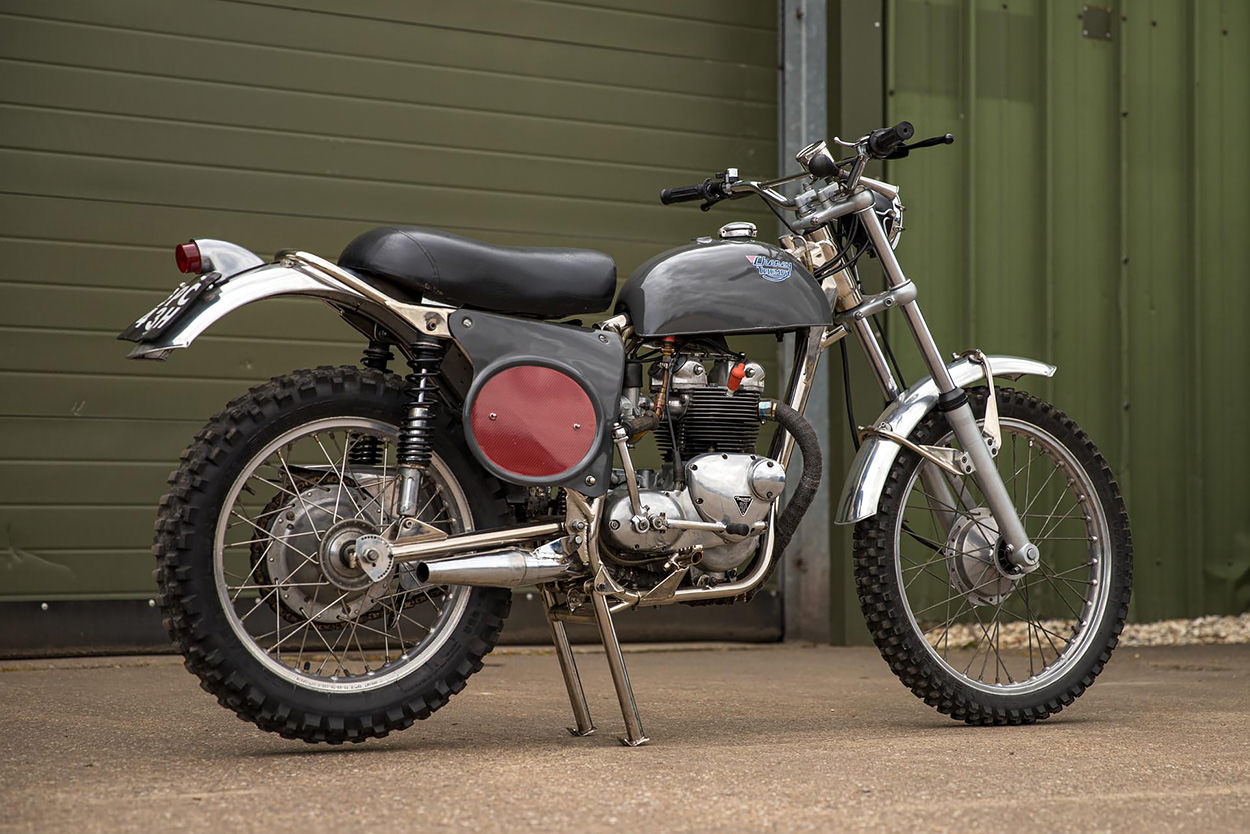
Eric passed away in 2001, but Cheney Racing still exists—and you can still buy frames and parts from them. This particular bike is noteworthy because it’s not from the 1960s, and it’s not quite new either. It was actually built in 1995 by Eric himself, and has just sold on Collecting Cars for the bargain price of £5,600 [just under $7,000].
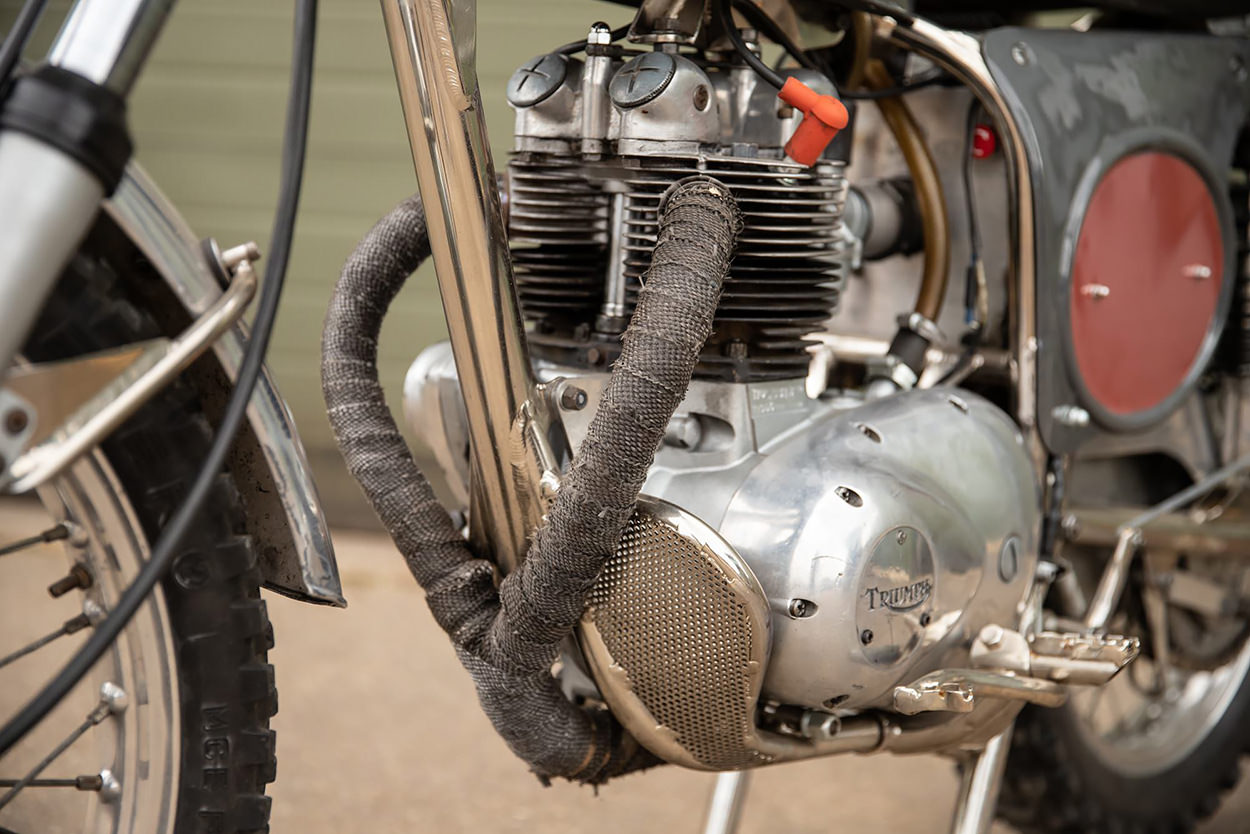
Eric built the bike in the same style as the International Six Day Trial bikes he created in the 60s, with a hand-built nickel-plated frame. The engine comes from a 1970-model Triumph Daytona; a 500 cc parallel-twin mill with a four-speed transmission.
The forks are Ceriani units, the shocks are from Koni and the wheels are Akront rims on Grimeca hubs. It also features an alloy fuel tank, fiberglass side panels and chromed fenders.
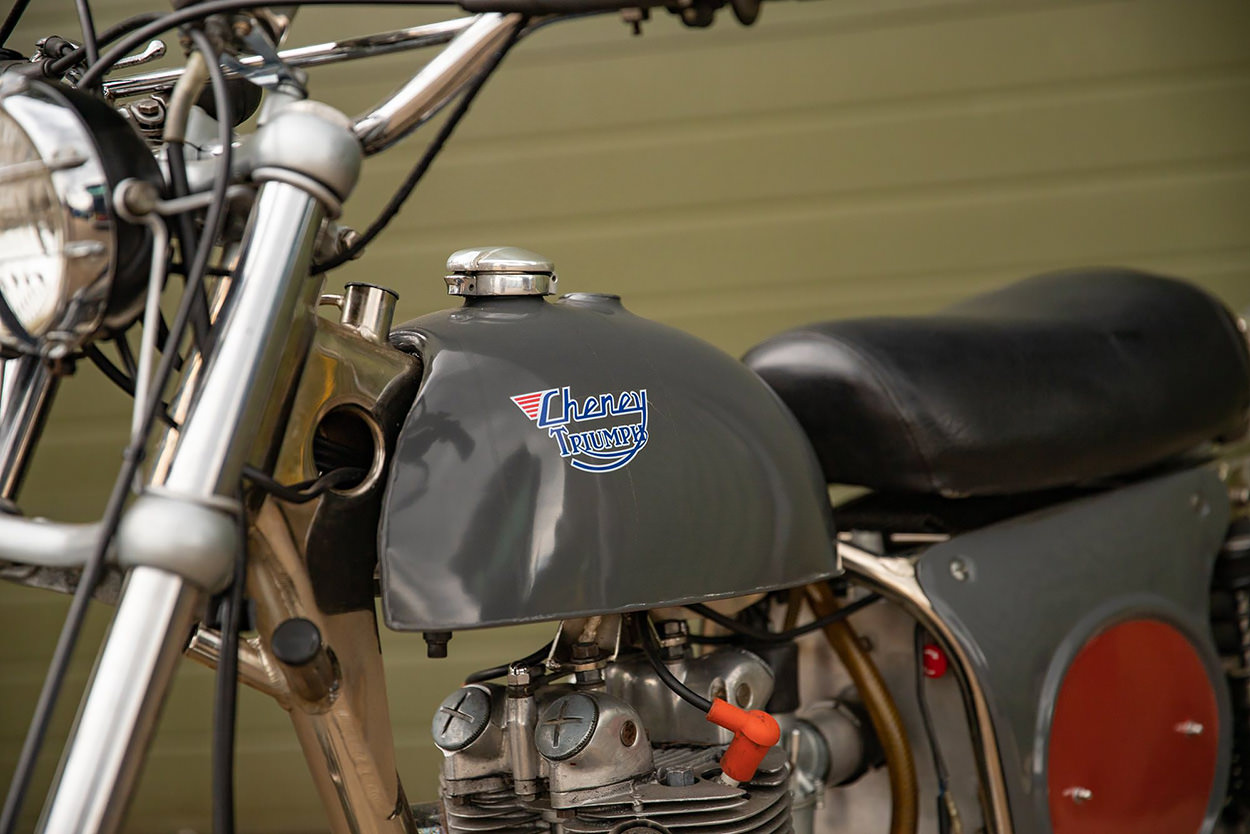
Even though it isn’t technically from the 60s, it ticks all the right boxes as a charming ‘vintage’ enduro bike. It’s also cute as a button, and we’re sad that we weren’t the ones that bought it. [Via]
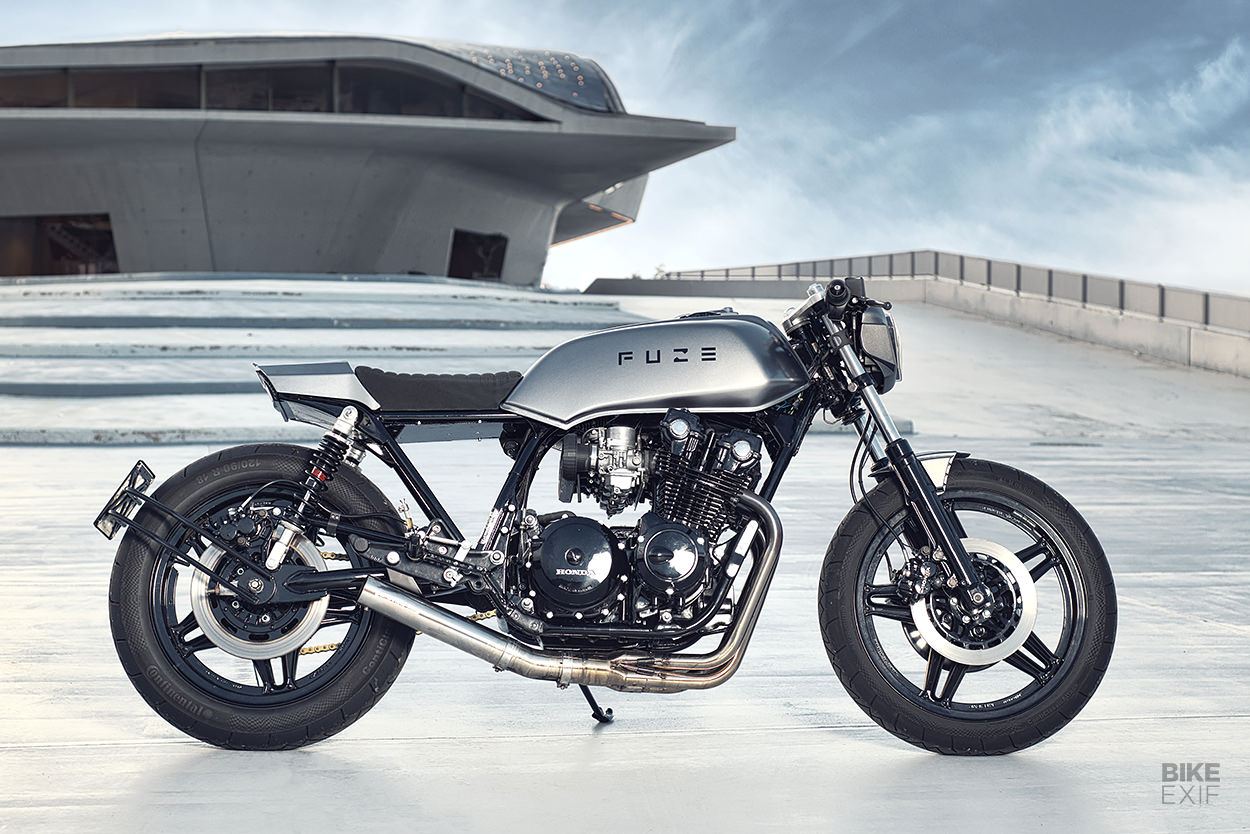
Honda CB750F by Fuze Modern manufacturing techniques like 3D printing have permeated the custom scene in a big way over the last few years. And even if you’re a traditionalist, it’s hard to ignore the benefits—especially when it comes to prototyping, refining and reproducing parts.
That’s the approach that Fuze took on this Honda CB750F café racer. Based in Salerno, Italy, Fuze is the after-hours endeavor of three motorcycle nuts with vastly different day jobs; Gerardo Di Maria (lawyer), Maurizio Accarino (mechanical engineer) and Raffaele Squitieri (doctor).
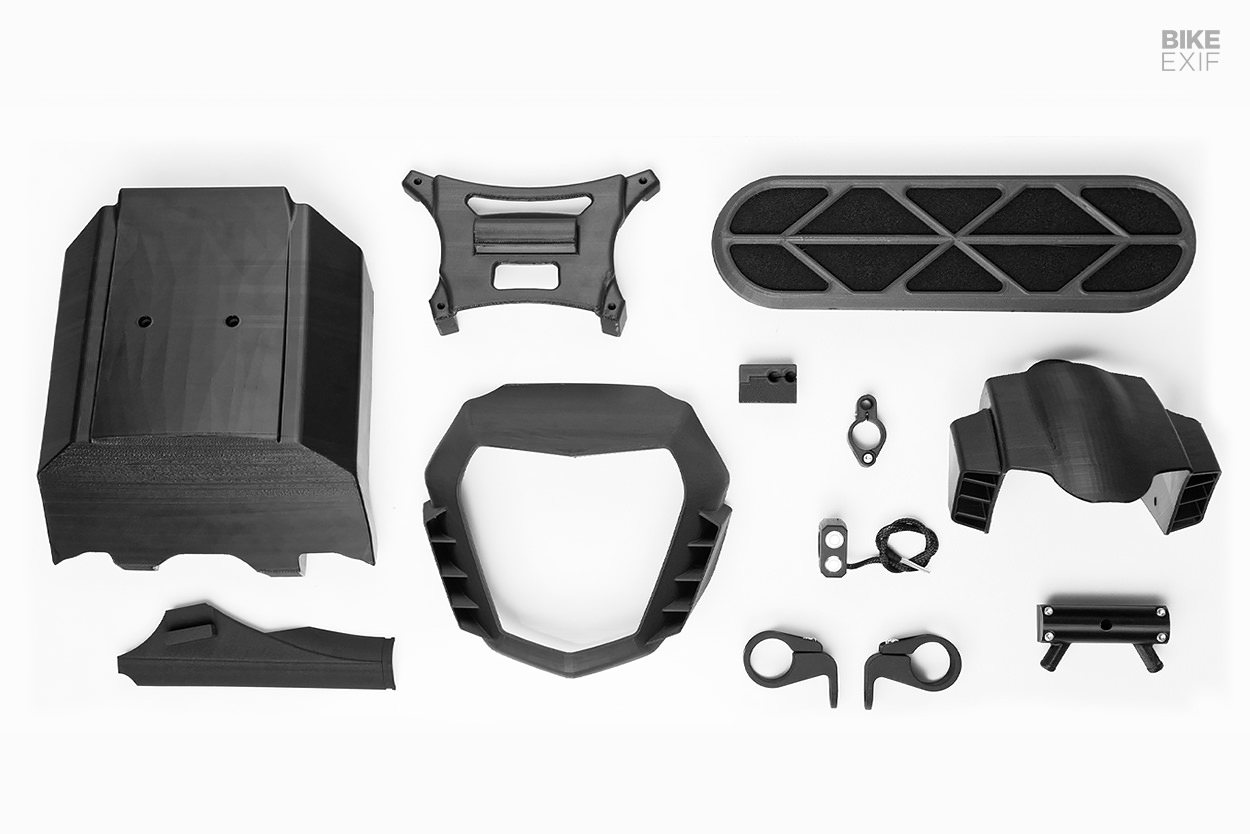
Fuze’s whole vibe is minimalism, so this CB has been stripped down to the bare essentials. The guys kept its OEM fuel tank, but redesigned everything else—opting for an 80s neo-futuristic look that takes cues from the tank’s angles. Most of the parts were 3D printed using hardy ABS plastic, and are now available as plug-and-play kits.
Fuze started at the back, with a new tail hump that plays on classic café racer and endurance racer shapes. It also houses a Lithium-ion battery, and an integrated taillight arrangement that uses LEDs borrowed from a Honda scooter. The team went through 30 prototypes before they were happy—but the final part will fit any CB750, as long as you trim the subframe first.
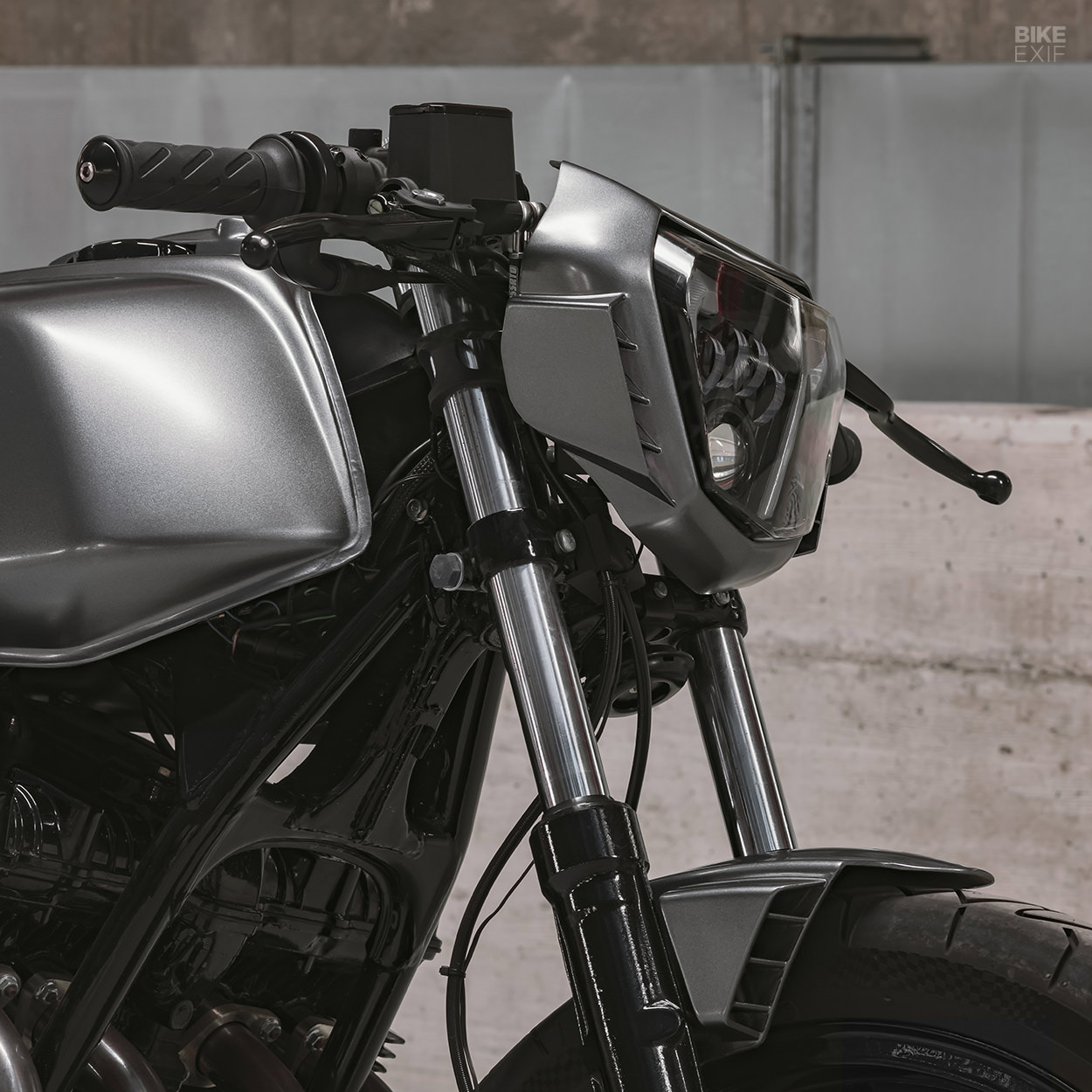
At the opposite end is a custom-made nacelle, wrapped around a KTM headlight. There’s a new front fender lower down, and both parts feature ‘winglets’ that were inspired by Honda’s fire-breathing CBR1000RR-R.
Just behind the headlight is a CNC-machined top yoke that also holds a tiny Motogadget speedo, new clip-ons, and custom-made switches. The whole bike’s been rewired too, using a Motogadget mo.unit blue control box, and high-end automotive electrical connectors to make maintenance and troubleshooting a breeze.
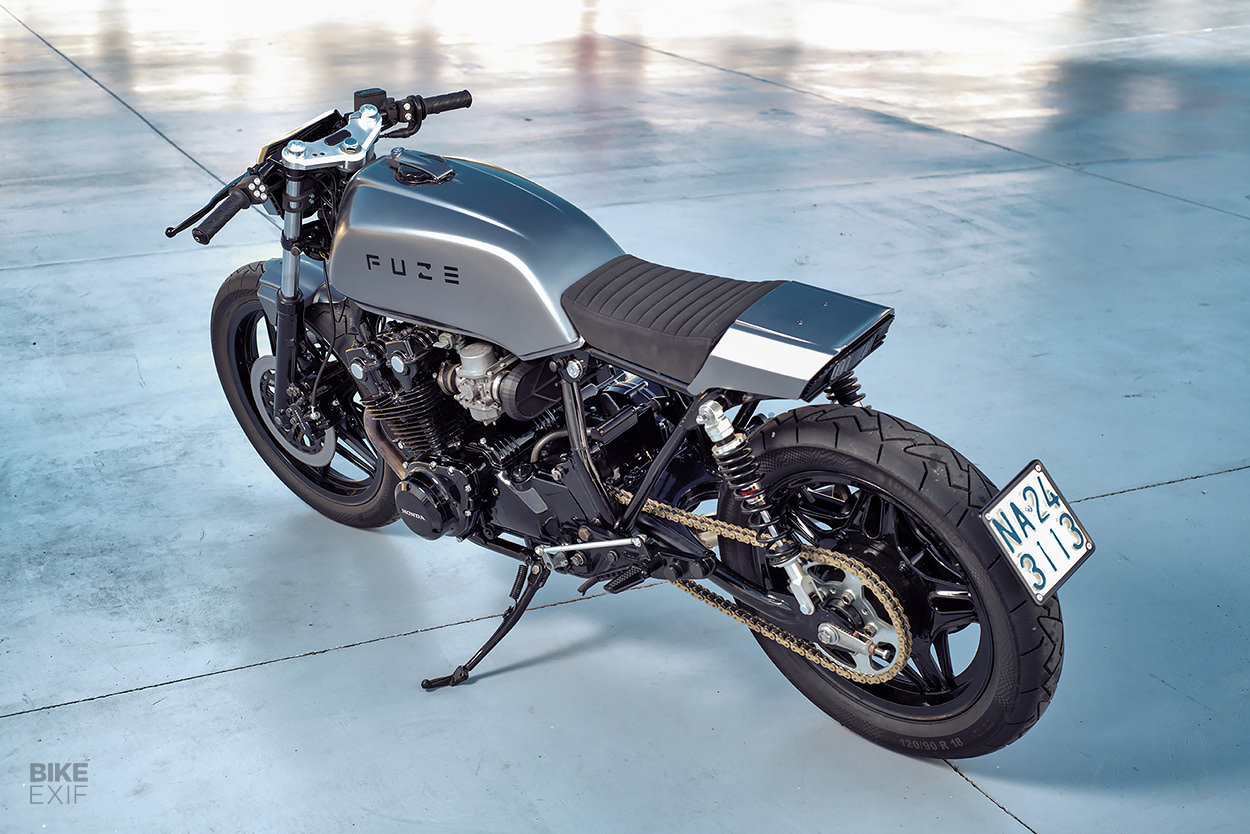
The CB750 retains its stock wheels, but they’ve been wrapped in Continental ContiAttack tires. The front forks have been overhauled and refilled with heavier weight oil, and there’s a new pair of YSS shocks at the back. Fuze also designed their own air intake, fitted a four-into-one exhaust from Devil, and tuned the bike with a Dynojet kit.
Other upgrades include blacked-out Raask foot pegs, Accossato brake hoses and a Brembo front master cylinder lifted from a Ducati Monster. As for the paint job, it’s a ‘frozen grey’ BMW color, that took five attempts to get just right; not too matte, not too shiny.
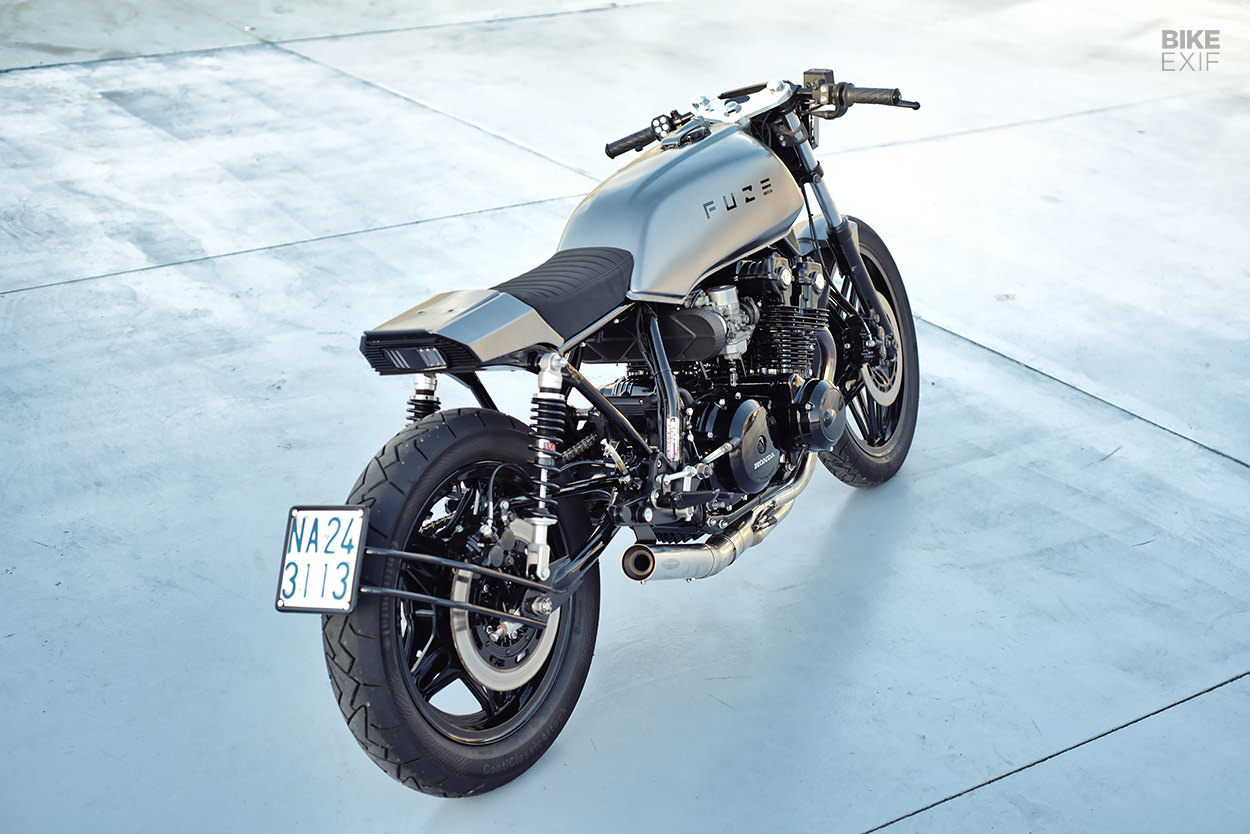
Fuze’s contemporary take on the CB750 is a welcome departure from the usual Honda café racers we see. And we love the fact that it can be replicated—provided you have a healthy credit card and at least a little know-how. [Fuze]
